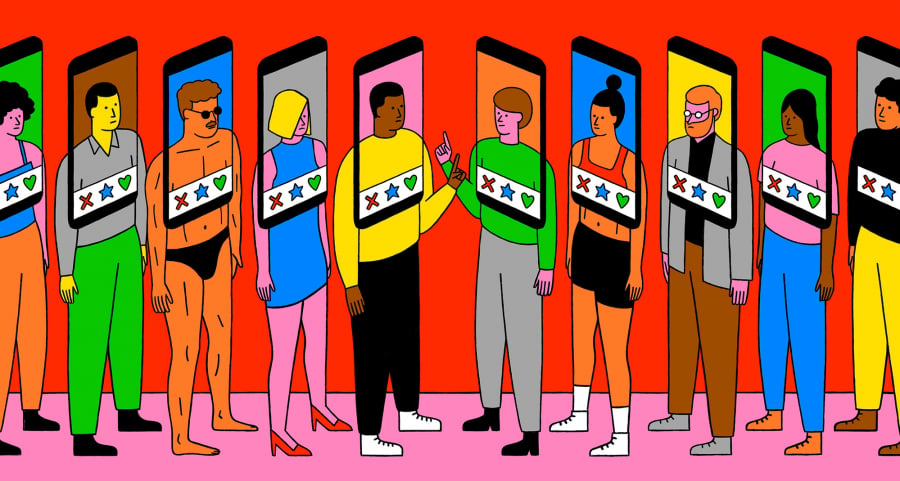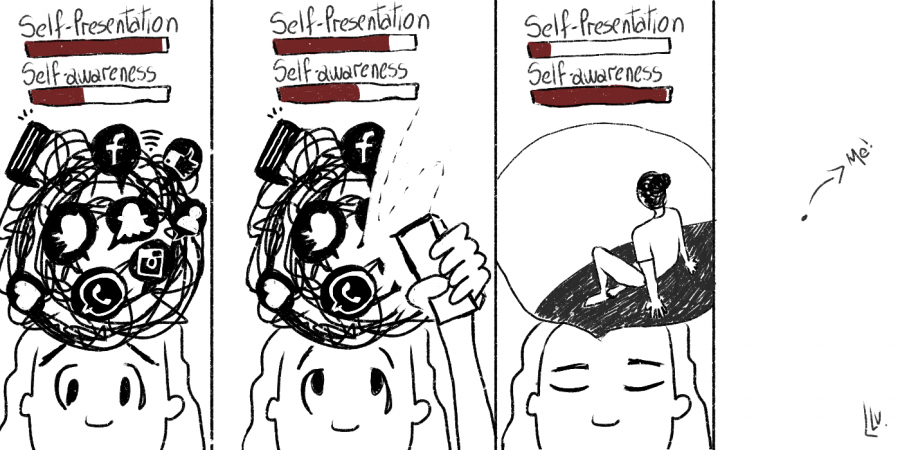To date, most debates about the impact of smartphones on the human body have focused ondopamineDopamine, a chemical in the brain that helps us form habits, is called the "happiness hormone" because when released in large quantities, it gives you feelings of pleasure, excitement, and inspiration. Clearly, smartphones and the colorful apps we download are designed to be highly addictive, making it hard to look away. But it is precisely that captivating touchscreen that increases dopamine levels in our bodies, which is why many experts believe that people are increasingly becoming addicted to their phones. In essence, it's not much different from a... gambling machine.

Photo: Raúl Soria
Phone addiction is already a bad thing, but its impact is even worse.cortisolEven more concerning. It's no exaggeration to say that cortisol is a hormone directly related to our survival. It has the ability to temporarily increase strength, improve work efficiency, speed up reaction times, enhance brain activity, reduce pain, and much more. Cortisol is produced as a natural defense mechanism, helping us react and survive in the face of imminent threats. When cortisol is released, it increases blood pressure, speeds up heart rate, and raises blood sugar levels – all responses that can save our lives in dangerous situations (for example, when a bull charges at us). But that's not all; our bodies also release cortisol in response to stressors and emotional disturbances, such as checking your phone to read that stressful email your boss just sent – in that case, a rapid heart rate is practically useless.
If cortisol levels only spike occasionally, it's probably not a big deal. But as you know, using your phone increases cortisol levels, and how many people actually do that?sometimesAre you new to using a phone?

Photo: Raúl Soria
According to a tracking app called Moment, the average American spends four hours a day staring at their phone and carrying it with them everywhere. As a result, as a Google report states, "phones are crammed with social media apps, flooded with emails and news," creating "a constant sense of dependence and generating unwanted stress."
David Greenfield, a clinical professor of psychiatry at the University of Connecticut School of Medicine and founder of the Center for Internet and Technology Addiction, said: "When you hold your phone in your hand, leave it on the table, hear a notification sound, or even just think about it, your body produces and raises cortisol levels. It's a stress response, a natural bodily reaction that urges you to pick up your phone and check it immediately to relieve that stress."
Doing so might give you momentary satisfaction, but in the long run, it has extremely negative effects. Because every time you open your phone, you'll be stimulated by something else: friends arguing in a group chat, outdated fashion trends, a scandal, someone recently robbed... anything. Each time this happens, your body produces more cortisol, and you want to delve deeper, scroll more to relieve your anxiety. This cycle repeats, leading to continuously high cortisol levels, to the point of becoming a "chronic disease."

Photo: Raúl Soria
Chronically high cortisol levels lead to a risk of serious health problems such as depression, obesity, metabolic syndrome, diabetes, reproductive issues, high blood pressure, heart attack, memory loss, and stroke. Not to mention, persistently high serum cortisol levels can lead to a condition called Cushing's syndrome. This syndrome causes muscle mass loss and weakness, thinning and atrophy of the skin, slow wound healing and easy bruising, and even increased risk of high blood pressure, kidney stones, osteoporosis, glucose intolerance, reduced immunity to infections, and mental disorders, etc.
"Stress can worsen all chronic illnesses, and smartphones play a significant role in that," says Dr. Robert Lustig, Professor Emeritus at the University of California, San Francisco.
In addition to potential long-term health consequences, stress from excessive phone use also immediately threatens... our lives.
Elevated cortisol levels impair the functioning of the prefrontal cortex—a crucial area of the brain involved in decision-making and rational thinking. The prefrontal cortex is unique to humans, and this specialized region enables individuals to possess advanced cognitive abilities such as one-handed manipulation, careful consideration before speaking, and awareness of their role within the family or social status. "The prefrontal cortex is the brain's god of reason," says Dr. Lustig, "It prevents us from doing stupid things."
Damage or impaired function in this particular brain region also means reduced self-control. Combined with the urge to do something to relieve stress, we are more likely to do things that provide momentary gratification but could lead to death, such as... texting while driving.

Photo: Raúl Soria
This stress can have an even greater impact if we constantly worry that something bad is about to happen – whether it's a bloody fight or a malicious comment on social media. If that bad thing involves the phone, this excessive anxiety can even manifest as Phantom Vibration Syndrome: you feel your phone vibrating in your pocket, even though there's no phone in your pocket.
Dr. Bruce McEwen, Senior Specialist in Neurology at Rockefeller University, said: "Everything we do, everything we experience, can affect our physiology and alter brain circuitry, impacting how we cope with stress and pressure to varying degrees."
McEwen also noted that the body's regular 24-hour cycle of rising and falling cortisol levels is disrupted or disappears if we sleep less than 7 to 8 hours a night, which is all too easy to happen if you have a habit of checking your phone before bed. As a result, the ability to cope with stress is weakened and the risk of the aforementioned health problems increases.
In conclusion, the time spent constantly checking your phone is not only more than enough for many other useful tasks, but it can also bring you countless health risks.
Change
The good news is that if we break the vicious cycle...Stress - relieve it with your phone - stress continues."This can help lower cortisol levels, thereby improving judgment and reducing the risk of stress-related illnesses. Over time, we can even 'retrain' our brains so that even when stressed, we won't instinctively pick up our phones to check them," says Dr. McEwen.
To begin your "rebellion" against being a "slave" to your phone, start by turning off all unnecessary notifications, leaving only those you truly care about.

Photo: Internet
Next, pay attention to how you usually feel each time you use a particular app. Which apps do you open because you're worried you'll miss something? Which apps tire you out and waste your time because you're constantly trying to keep up with their content? Hide all these apps from your phone's home screen. Or better yet, delete them for a few days and see how you feel.
At the same time, while using your phone, pay attention to how each app affects your body. "If we're not aware of how our bodies feel, we won't change our behavior," says Dr. Judson Brewer at Brown University. According to Dr. Brewer, anxiety and stress often manifest as a feeling of tightness in the chest.

Take time and space for yourself to listen to and observe your own behaviors and tendencies. - Photo: Eat, Pray, Love
Regularly turning off your phone and taking "breaks" is also an effective way to rebalance your body's chemicals and regain self-control. Even if you just start by going to lunch without your phone, that's a welcome step in the right direction.
Also, try to pay attention to your feelings.Craving a phone due to anxiety.What is it like - justseeIt's okay to let your brain and body feel whatever they want; there's no need to immediately resist the temptation.
As Jack Kornfield, a Buddhist instructor at the Spirit Rock Meditation Center in California, once said: "We don't necessarily have to blindly obey the commands of the mind."Fear of missing outThat's it. Because ultimately, humans are the masters of technology, not the other way around.

 VI
VI EN
EN






























